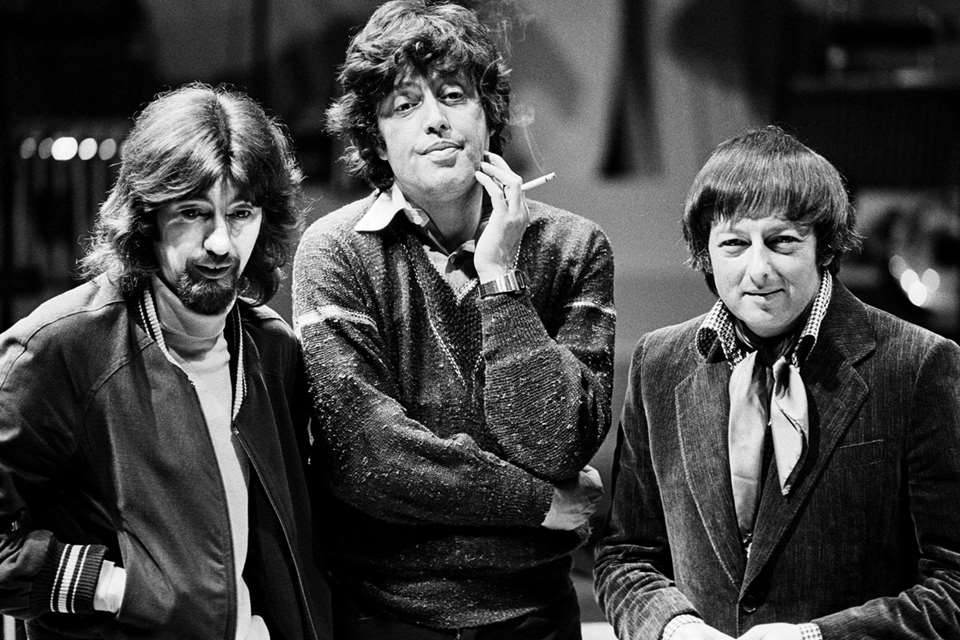Blurred Lines: a playlist of musical meeting points
Wednesday, August 18, 2021
Jack Pepper curates a playlist of familiar artists in unexpected repertoire
Are genres a thing of the past? Did they ever even exist?
The questions are not new to the digital and streaming era – they’ve existed for centuries. Composers have always blurred lines in their music, from Bach cantatas drawing on popular airs of the day, to Mahler’s incorporation of folk dances and marches into his symphonies.
It goes the other way, too. Duke Ellington wrote symphonic works premiered in Carnegie Hall. My Fair Lady composer Frederick Loewe began his career as a classical pianist, playing at Carnegie Hall in 1942 (just over a decade before his hit musical). John Coltrane’s ‘sheets of sound’ might easily have been inspired by listening to harp music, of which he was a fan.
The question was well-addressed by Gunther Schuller. His horn-playing CV included such varied work as Principal Horn of the Metropolitan Opera Orchestra, and playing with Dizzy Gillespie and Miles Davis. Against this backdrop, Schuller coined the term ‘third stream’: music that combines classical and jazz techniques. He described it as 'the ultimate anti-label music, for its very essence is based on the concept of diversity and non-categorisation'. Could we go one step further, broadening this concept beyond classical links with jazz alone, to all music; appropriately in this digital era, would a more fitting term be fourth, tenth, hundredth stream?!
Genres don’t come first; they’re a label applied to a piece long after it has been written. As a composer, I work on orchestral commissions, military band music and a new musical all in the same week – and my listening is similarly eclectic. It only widened in lockdown – and I was in for a few surprises along the way…
Here are some of the most colourful discoveries, with household names exploring unexpected repertoire.

Renée Fleming sings All the Things You Are - an understated, intimate rendition of a classic (photo: Decca)
Renée Fleming: ‘Broadway’
Jerome Kern and Oscar Hammerstein II – All The Things You Are (from Very Warm For May)
Renée Fleming’s 2018 Decca album is a celebration of the sheer diversity of musical theatre, from Pasek and Paul to Rodgers and Hammerstein, set against an orchestral backdrop. My go-to track has to be this understated, intimate rendition of a classic – a song that Jerome Kern famously declared would be 'too difficult' for the public, because of the key change half-way through. It’s an enharmonic shift, a device littered throughout Kern’s songs (I think of Smoke Gets In Your Eyes), and something found frequently in classical, from Holst’s The Planets to Schubert piano sonatas. Kern proves that popular music is not mindless repetition, but can twist and turn; nor is it anathema to classical techniques. Kern prided himself on bringing sophistication to popular music, telling Vivian Ellis: 'Go on being uncommercial – there’s a lot of money in it'.
Fleming came onto my Scala Radio show in 2019, when she starred on the London musical stage in The Light In The Piazza at the Southbank Centre; preparing for that chat, I was surprised to come across recordings of Tears For Fears’ Mad World and songs from The Lord Of The Rings franchise (including several where she’s joined by James Galway). Hers is an ever-surprising and ever-generous catalogue.
Vladimir Ashkenazy: ‘Walking In The Air: The Music of Howard Blake’
Howard Blake – Lara’s Theme (The Duellists)
Howard Blake might be best-known for Walking In The Air, but he has a rich catalogue of more than 700 works, among them a Piano Concerto commissioned by The Philharmonia for Princess Diana’s 30th Birthday, and Benedictus, championed by Sir David Willcocks. And it’s not just the concert hall and cathedral, but the cinema too. Blake has collaborated with Ridley Scott – and this piece comes from the latter’s directorial debut, the 1977 historical drama The Duellists.
We don’t often link the name of Vladimir Ashkenazy with film music, or indeed with Christmas songs. This album does both. He and Blake have been friends for years, and this record features a prelude written especially for the pianist, made out of his initials. The album is, therefore, a testament to friendship, and to a varied and ever-surprising British writing talent.
Anne Sofie Von Otter: ‘Anne Sofie Von Otter: Douce France’
Charles Trenet – Douce France
On now to the mezzo-soprano Anne Sofie Von Otter. From the Royal Opera House to brushes with jazz and pop, she is one of the most-recorded artists of our time. She won a Grammy for this album in 2015, exploring French art songs and chansons, veering from Ravel to Charles Trenet. It’s a recording of quiet intimacy.
Anne Sofie Von Otter and John Eliot Gardiner: ‘Speak Low: Songs by Kurt Weill’
Kurt Weill and Ogden Nash – I’m A Stranger Here Myself (One Touch Of Venus)
In 1940, Kurt Weill told the New York Sun: 'I have never acknowledged the difference between "serious" music and "light" music. There is only good music and bad music… Schoenberg has said he is writing for a time 50 years after his death. But the great classical composers wrote for their contemporary audiences. They wanted those who heard their music to understand it, and they did. For myself, I write for today.' Celebrated for his edgy political theatre in Weimar Germany, Weill then fled the Nazis and came to Broadway. He bridged the gap between ‘art’ and ‘commercial’ music (if they must be distinct in the first place). In America, he continued to collaborate with top-end writers, including Maxwell Anderson and Ogden Nash; his musical Street Scene cast its two leads from the Metropolitan Opera, whilst in the pit sat a 35-strong orchestra; Love Life featured a full two hours of music, with the score running to 738 pages.
Despite this, Weill was viewed by some (back in Germany, and by the likes of Virgil Thomson in America) with suspicion – a sell-out who failed to rival the greatness of his early work. The song ‘A Stranger Here Myself’ could almost apply to the exiled Weill himself.
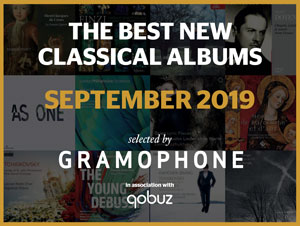
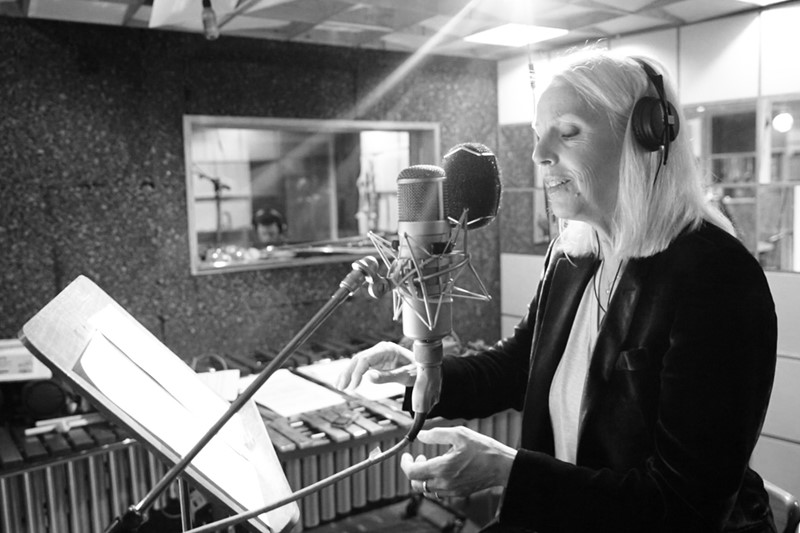
Anne Sofie Von Otter recording her Douce France album for the Naïve label (photo: Martin Gustafsson/Naïve)
Kiri Te Kanawa: ‘Kiri Sings Kern’
Jerome Kern and Oscar Hammerstein II – The Song Is You (Music In The Air)
Aged 16, Te Kanawa would sing show tunes in the evening at restaurants, clubs and weddings – everything from My Fair Lady to West Side Story. For a time, she wasn’t sure whether she wanted to pursue a career in opera or in so-called ‘light music’ (a phrase I despise – after all, isn’t there plenty of ‘light’ classical music, ‘light’ Beethoven et al.?). In the years since, Dame Kiri has recorded with Nelson Riddle and the New World Philharmonic, but this has to be my favourite of her repertoire surprises…
‘Kiri Sings Kern’ sees her joined by a lush-sounding London Sinfonietta. Lush, perhaps, because it is conducted and arranged by a Broadway legend: Jonathan Tunick. He has been Stephen Sondheim’s orchestrator since the days of Company. That makes this album a musical handshake across generations, as well as across genres.
Sarah Fox: ‘The Cole Porter Songbook’
Cole Porter – Anything Goes (Anything Goes)
Cole Porter studied classical violin from the age of six, and then the piano from eight, regularly practising the latter for up to two hours a day. It was whilst studying at Yale that he crossed over to musical theatre, writing shows for college friends.
Soprano Sarah Fox has performed at Glyndebourne in Janáček and Mozart, but was just as at home on the 2011 BBC Proms stage with the John Wilson Orchestra and stars from the musicals. Her celebration of Cole Porter on Signum Classics, however, takes a step back from the big band/orchestral sound so often associated with musicals, instead opting for piano support from James Burton; this takes us back to the genesis of so many Porter songs – sat around a piano at a party, having a good time. The stripped-back arrangement also allows us to focus on Porter’s all-important wordplay and ingenious rhymes – after all, what is theatre without words? In this recording, we can enjoy Porter as a true poet of Broadway.
King’s Singers: ‘The King’s Singers: Love Songs’
Frances – Don’t Worry About Me (arr. Christopher Bruerton)
The King’s Singers have recorded everything from Purcell to Rodgers and Hart, from traditional Chinese melodies to Billy Joel.
28-year-old singer-songwriter Frances’s indie pop song Don’t Worry About Me opens with an a cappella verse (50 seconds of a single voice – a starkness unusual for a pop record). The King’s Singers version draws out this striking sense of contemplative space. A single voice is eventually joined in duet; it’s more than a minute before we hear the full ensemble. It makes me think of Debussy’s quote that 'music is the space between the notes' – and, so often with the King’s Singers covers, they prove that pop can be just as capable as classical in embracing light and shade.
Chick Corea: ‘Bobby McFerrin, Chick Corea – The Mozart Sessions’
Mozart – Piano Concerto No 23, 3rd Movement
Jazz pianist and composer Chick Corea’s passing in February led me to dig deeper into his work. He began with classical, taking lessons for five years before attending the Juilliard School as a piano major. He went on to give concerts with string quartets, and used synthesisers to mimic the textures of an orchestra. Corea commented: 'what I am striving for is incorporating the discipline and beauty of the symphony orchestra and classical composers – the subtlety and beauty of harmony, melody and form – with the looseness and rhythmic dancing quality of jazz and more folksy musics.'
Appropriately for a man who composed his own piano concerto, this album showcases Corea with one by Mozart.

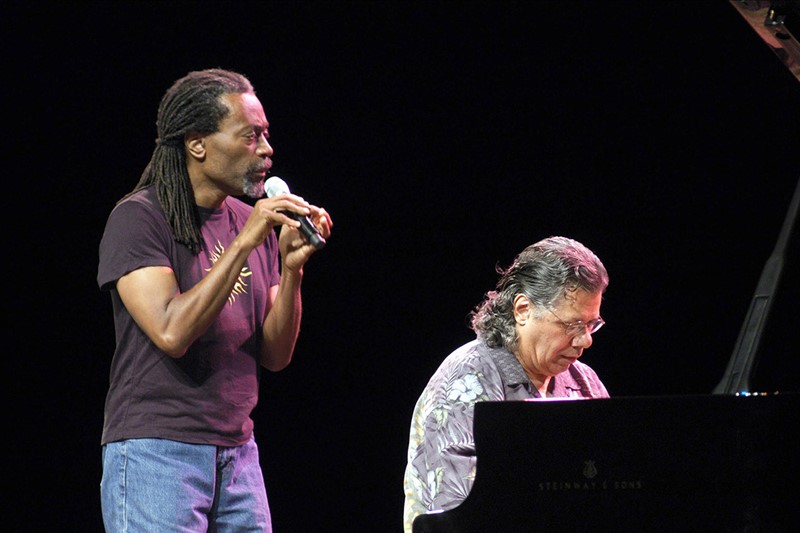
Bobby McFerrin and Chick Corea united in the music of Mozart (photo: Allstar Picture Library Ltd/Alamy Stock Photo)
VOCES8: ‘VOCES8: Feeling Good’
Leslie Bricusse and Anthony Newley – Feeling Good (The Roar Of The Greasepaint, The Smell Of The Crowd)
This VOCES8 album places James Bond by The Beach Boys, alongside this classic tune that originally emerged from a 1964 musical.
Its co-writer, Leslie Bricusse, told me how he had taken classical piano lessons briefly as a boy, but didn’t take to the formality; he feels that sustained formal training might have stopped him from doing what already came naturally (an interesting thought that has been echoed by Irving Berlin, as well as by William Lloyd Webber in giving advice to his son, Andrew). However, Leslie clearly has a keen love of classical, and has recently been working on setting lyrics to the music of both Gershwin and Tchaikovsky.
Itzhak Perlman: ‘Perlman Plays Klezmer’
Traditional – Der Heyser Bulgar
When Itzhak Perlman came onto my radio show in May, my greatest difficulty was deciding what NOT to play. Recordings of André Previn, Ennio Morricone and Scott Joplin sit alongside Vivaldi and Paganini in his immense catalogue.
Like his friend and collaborator Yo-Yo Ma, Itzhak Perlman is no stranger to crossing musical borders, from his famous violin solo in Schindler’s List, to this uplifting album of traditional Jewish melodies. Klezmer is also called ‘Freilech music’, meaning ‘joyful’ – and this will certainly give you an energy kick. The music of celebration, it is a fitting way to wish Itzhak Perlman a Happy 75th Birthday year.
Tippett Quartet: ‘Bernard Herrmann: Psycho Suite For String Quartet, Souvenirs De Voyage, Echoes’
Bernard Herrmann – Psycho Suite, for string quartet
The Tippett Quartet are just as likely to be found at Ronnie Scott’s as they are at the Wigmore Hall. They’ve championed Beethoven, Alissa Firsova and Frank Sinatra, and played in the soundtrack of the Daniel Craig movie Knives Out. Appropriately with that last credit in mind, one of their most famous projects celebrated a cinema stalwart. 2011 marked the centenary of Bernard Herrmann’s birth, and the Tippett Quartet placed his music alongside quartets by Korngold and Miklós Rózsa. They commissioned this string quartet arrangement of his score to Psycho, with the direct permission of the composer’s widow, Norma Herrmann; it features a double-tracked Tippett Quartet. Nestled alongside it is Herrmann’s melancholic string quartet Echoes, penned as a relationship was falling apart.
This album in many ways brings Herrmann full circle, for he started life in classical. He studied with Percy Grainger and at the Juilliard School, and established his own orchestra at the age of 20. He later became Chief Conductor of the CBS Symphony Orchestra – all before he became an Oscar-winning movie legend.
Royal Philharmonic Orchestra: ‘New Nation Rising: A 21st Century Symphony’
Shirley J Thompson – New Nation Rising
The Royal Philharmonic Orchestra play alongside two choirs, solo singers, a rapper, dhol drummers and a drum kit: that’s around 200 performers in all. Thompson’s Symphony charts London’s 1000-year history, and was commissioned for The Queen’s Golden Jubilee in 2002; it was later used as the inspiration and framework for the Opening Ceremony of the 2012 London Olympic Games. In its colourful combination of instruments and styles, Thompson highlights the varied influences that have always characterised British culture.
Richard Rodney Bennett: ‘Richard Rodney Bennett – Harold Arlen’s Songs’
Harold Arlen, E.Y. Harburg and Ira Gershwin – Fun To Be Fooled (Life Begins at 8:40)
Songwriter Harold Arlen was a gifted pianist and singer (he originally wanted to become a professional vocalist). It’s appropriate, then, that his songs are covered here by fellow composer-pianist Richard Rodney Bennett, who had a double life as a cabaret singer. With piano and voice, it feels like we’ve stumbled into his flat (or a smoky basement club…) whilst he’s doodling at the keys. Although it’s hardly the most nuanced singing, the stripped-back setting allows you to focus on the dazzling wordplay of the great E.Y. Harburg and Ira Gershwin, and the often-surprising harmonic shifts and structural turns of Harold Arlen, one of the great experimenters in American Song.
Rachel Barton Pine: ‘Blues Dialogues’
Coleridge-Taylor Perkinson – Louisiana Blues Strut
Why don’t we hear this name more often? Coleridge-Taylor Perkinson wrote ballet and film scores, worked as a music director and arranger for soul and jazz stars like Marvin Gaye and Max Roach, and co-founded a symphony orchestra.
Violinist Rachel Barton Pine has an illustrious history of championing neglected composers through the Rachel Barton Pine Foundation, set up in 2001; it has since collected more than 900 pieces written by over 350 black composers, spanning the 1700s right through to the present day. Among her 38 album releases, the title ‘Blues Dialogues’ is a doubly appropriate one, since it feels at once like a conversation between classical and jazz, and between past and present; the recording also showcases music by the likes of Duke Ellington, Dolores White and Errollyn Wallen. Many a new discovery…
Art Deco Trio: ‘Gershwinicity’
George Gershwin, Ira Gershwin and Howard Dietz – Someone To Watch Over Me (Oh, Kay!)
This SOMM recording marks a debut for composer-pianist Iain Farrington’s Art Deco Trio, presenting 15 new instrumental arrangements of classic Gershwin songs. With clarinet, saxophone and piano, it’s a colourful blend of instruments and of genres.
André Previn: ‘Come Rain Or Come Shine – Sylvia McNair and André Previn’
Harold Arlen, E.Y. Harburg and Billy Rose – It’s Only A Paper Moon
Who sums up the spirit of musical freedom better than André Previn? An Oscar-winning film composer, a man behind two West End musicals and also operas like A Streetcar Named Desire, a classical conductor and a jazz pianist…
Previn’s piano-playing in this track offers unobtrusive commentary, with sly licks and stabs offering little snatches of colour, but never distracting from the vocal line and all-important words. Stephen Sondheim’s mantra 'less is more' feels apt.

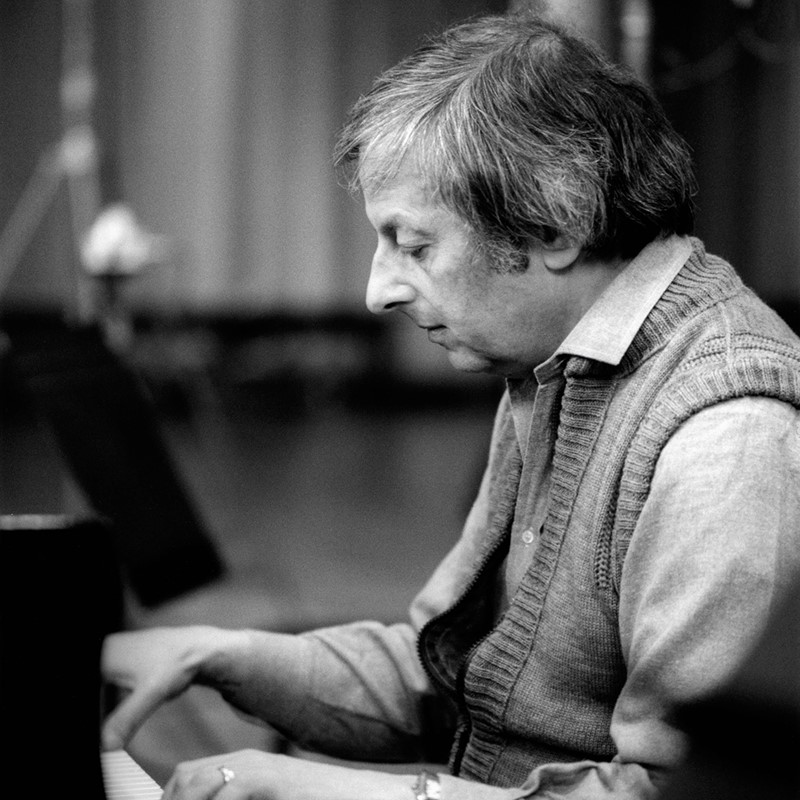
André Previn: a man who sums up the spirit of musical freedom (photo: Suzie Maeder/Bridgeman Images)
Jack Pepper is a composer, broadcaster and writer. He has composed for the Royal Opera House, Royal Liverpool Philharmonic and Bournemouth Symphony Orchestras, and is currently writing a new musical. He is a presenter on Scala Radio.




